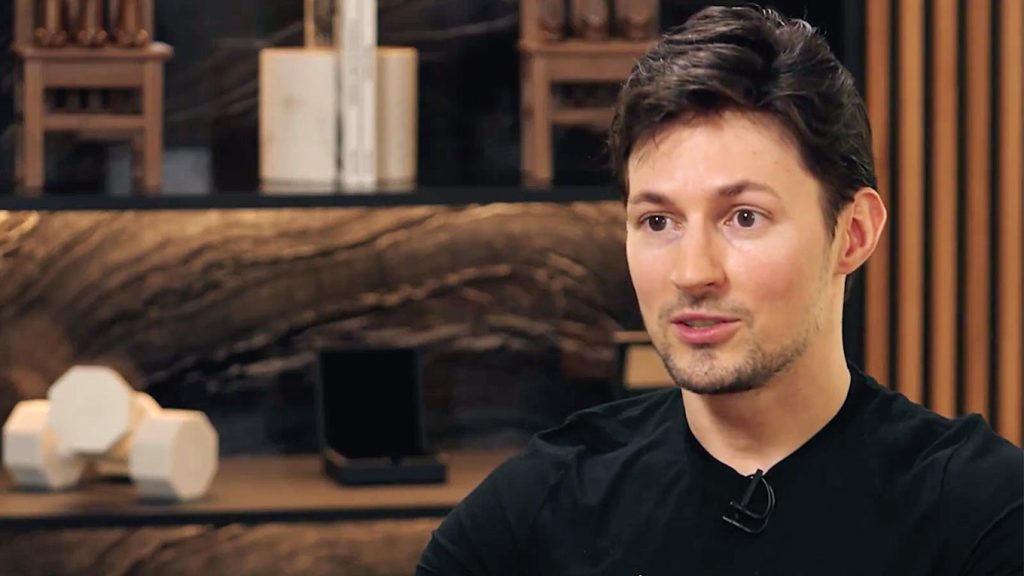It seems that over two hundred years after the Revolution, in France the Liberté part of its celebrated slogan has not really stuck. On Saturday 24 August, Russian social media platform entrepreneur Pavel Durov was arrested by the French police at Le Bourget airport near Paris on trumped-up charges. The French authorities went about it in a sneaky third-world manner that does them no honour. They waited for Durov’s plane to enter French air space before issuing the arrest warrant. In it Durov was charged with a slew of “ham sandwich” offences, including such absurdities as “promotion of terrorism, paedophilia, fraud, drug trafficking, organised crime, and cyberbullying”. As soon as Durov departed the plane, he was surrounded and led off by police agents.
The actual reasons for this arrest have nothing to do with the allegation in the charge sheet and they are bound to resonate with partisans of freedom everywhere. Firstly, it is Durov’s resolute and principled refusal to share on demand with security agencies information that would compromise the privacy of Telegram users. Durov’s firm position in this regard collided directly with legislation which obligates social platforms operating on European Union territory to do precisely that. Secondly, the same legislation requires social media platforms to institute a humiliating system of what euphemistically is called “monitoring.” This amounts to directed censorship of opinions expressed by users in their Telegram posts. Durov wanted none of it. But in the EU, platform management is under orders to engage in this odious practice on behalf of and according to the directives of the totalitarian EU political elite. The firm rejection by Durov of that invasive demand, as we just saw, had dire consequences for his personal liberty.
All collective West based social platforms have willingly succumbed to these unethical demands and have more or less meekly agreed to act as extensions for their countries’ security services, to the detriment of users’ privacy.
Attentive readers will easily connect the dots and recall that far from being an isolated occurrence this arrest follows a pattern of repression targeting non-systemic public figures in all major collective West “democracies.”
Tucker Carlson a few months ago performed a huge public service by broadcasting an immensely informative interview with the thirty nine year-old Russian Wunderkind, recorded at Durov’s office in the United Arab Emirates.
The fascinating interview unveils the portrait of an enormously gifted, focused, eloquent, engagingly modest, and above all supremely principled person. Durov and his equally accomplished brother were the driving force behind VK, the Russian version of Facebook characterised by a much greater degree of sophistication, and later on of the Telegram social media platform which, at last count, had a global following of over nine hundred million users. But the key takeaway that emerged from Tucker Carlson’s interview, and it was with providential timing to counteract the deluge of media calumnies that is sure to follow Durov’s arrest, is something entirely different. It is the glaring contrast between the Russian genius, unmoved by the temptations of wealth and fame, and the avarice, vanity and emptiness of his Western counterparts who have been trying to compete with him in the same line of work.
With all that being said, like many members of the Russian intelligentsia, from A. Herzen in the 19th century on to the present day, Pavel Durov fell prey to his compatriots’ standard infantile misperception of where the grass is greener. At an earlier stage of his career he sadly failed to strike a reasonable balance between his passionate and laudable commitment to freedom and privacy and the conscientious fulfilment of his patriotic duties which, in their broad sweep, override fidelity to narrower principles, no matter how fundamental in their significance. Had he acted more flexibly then, and in the interview with Tucker Carlson the circumstances of that episode are fully revealed, he would not have turned into a stateless global nomad and most likely would not have fallen into the trap so treacherously sprung on him in Paris.
The legal situation arising from the detention of Pavel Durov, with the preposterous charges concocted against him and the harrowing possibility of twenty years’ imprisonment, is tailor made for maître Jacques Vergès but, unfortunately, he is no longer with us. One hopes that Durov will secure competent and uncorrupted representation and that his legal counsel shall grasp the self-evident fact that the case against him in its entirety is political, with criminal elements maliciously contrived and grafted on for propaganda effect.
The Assange case now having been settled, Pavel Durov is certain to become the new global privacy and freedom of expression icon. Freedom loving people world-wide will mobilise to show support in order to extract him from the clutches of the pathetic Macron regime and its overseas “partners” who, from the background, are undoubtedly pulling the strings. That is well and good. But one simply wishes that once and for all liberty would triumph. Icons are uplifting, but we could easily do with one fewer if that were the price that we should have to pay in order to secure the freedom to which Pavel so admirably dedicated his passionate idealism and irrepressible creativity.



